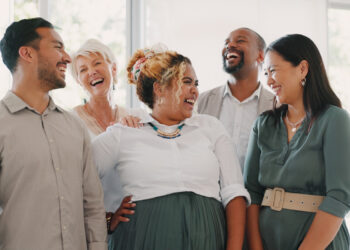According to the National Association of Anorexia Nervosa (ANAD), at least one person dies every 62 minutes as a direct result of an eating disorder, and eating disorders have the highest mortality rate of any mental illness. Reinforcing education on how to support those who struggle with an eating disorder can be the foundation of healing for many. So how does this relate to health clubs?
Some people with eating disorders will reincorporate the gym into their lives if their respective point in recovery permits it. At the same time, those who struggle with eating disorders may engage in harmful behaviors in the gym if proper intentions are not set. Furthermore, far too many health club marketing tactics can be insensitive and harmful toward a variety of audiences, specifically those who struggle with an eating disorder.
Mindfulness, awareness and proper education surrounding eating disorders and their compulsive behaviors can provide the opportunity for health clubs to be a potential asset in one’s recovery, rather than a liability. I teamed up with Sammi Farber LMSW, an eating disorder therapist in Connecticut, to provide questions on this topic through the lens of a fitness professional and answers through the lens of an eating disorder professional.
Sammi has personally struggled with and recovered from an eating disorder herself. Below, she provides valuable perspective on how fitness professionals can align their support with the recovery of members with eating disorders and promote their message more inclusively:
How should gym professionals respond if a member shares with them they have an eating disorder?
There should be a pause in the work together, regardless if it is the initial session or the 100th, and the following questions are suggested to be asked:
- Are you working with a specialist, and do you have clearance from a doctor?
- Are you actively in recovery?
- Do you have a treatment team?
There needs to be more clarity provided as to the intentions behind the person’s movement goals as per their team. No one is saying “no” and there is still potential for the process in the gym to take place. If someone has stated they are actively in an eating disorder and do not have a recovery team, and the fitness professional proceeds with services, then it is no different than a bar accepting chips from AA as payment. If the person has a treatment team, it may be best to receive clearance to create communication with those who are assisting them with recovery to learn if it is proper to proceed with their movement goals. Either way, it is suggested to have the session postponed.
Here are some additional suggestions:
- Never put people who have shared they have an eating disorder on a scale.
- Do not tell them what to eat. Fitness professionals who are not appropriately trained in eating disorders do not have a large enough scope for this as it pertains to people who struggle with eating disorders.
- Don’t use societally influenced slogans such as “Strong is the new skinny” and “Nothing tastes as good as skinny feels.” These are commonly misused by subconsciously reinforcing the ideality of “thin privilege.”
- Do not confuse one’s restriction of food as discipline toward food.
Why is it important to reframe one’s thinking to “eat to move,” rather than “move to eat?”
We constantly see people saying things along the lines of “I need walk off what I ate.” The world needs to be safer for people who struggle with eating disorders, and quite frankly, those who even struggle with disordered eating (different from an eating disorder), which has rapidly become the vast majority.
We cannot assume all people are OK with talking about working out and one’s weight. Whether they are gaining, losing, or maintaining is nothing more than a side effect and representation of their relationship to food and movement. However, society has recreated the narrative to say health is contingent of weight when in reality, weight is more contingent of one’s health in regards to many factors, not just what one eats or how one moves.
Unfortunately, this all holds so much power over us, and our society reinforces the idea numbers on a scale add value to or take value from our life. Your body is healthiest when you trust your body, have a healthy relationship with food and movement, and understand where your body wants to be, rather than where you or society say your body should be.
How is a message such as “Join our gym to lose your quarantine weight gain” harmful and wrong?
Joining a gym, especially during COVID times, should be about so much more than weight. We need to stop telling people they need to shrink. It doesn’t feel right to limit, restrict or bully someone by making them feel bad about themselves. The messaging should be more along the lines of “Celebrate being able to move together as a community.”
It is suggested to focus more on feeling what one’s body can do with reintegration into a gym, rather than telling people where their bodies should not be. Market self worth. Every single body is worthy.
What powerful statements do people who struggle with eating disorders need to hear?
You are somebody, you are not a body. You cannot pick an eating disorder out in a crowd.
To my warriors struggling, asking yourself if this very article even relates to you or if you should consider getting help — please know the question is not “Am I sick enough?” but rather “Have I had enough of being sick?”
If you or someone you know is struggling with an eating disorder, please refer to the resources below for support:
- National Eating Disorder Association Helpline
- Reach out to Sammi through her Instagram: @recoveredeeeats
- Email Sammi
Stay ahead in the fitness industry with exclusive updates!
Ethan Smoorenburg is a franchise business consultant with Anytime Fitness Corporate. He can be reached at ethan.smoorenburg@sebrands.com.











